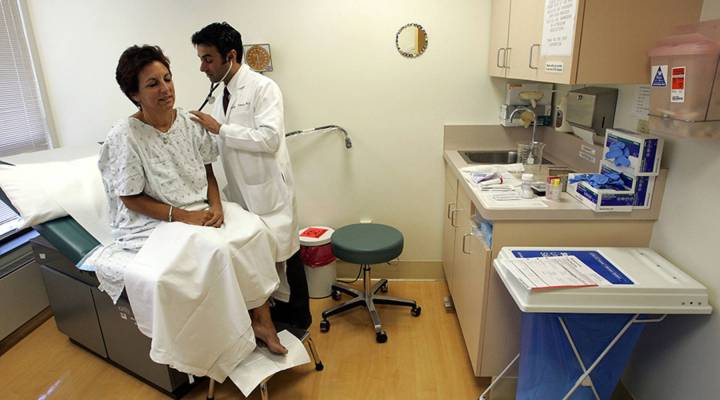
Mind the gap: Navigating the transition from pediatric to adult health care
Mind the gap: Navigating the transition from pediatric to adult health care

This page is a part of our special on the economics of disability. You can listen to the podcast here, check out a full transcript of the episode and read this glossary of terms we used in our coverage throughout the show.
One of the biggest issues in health care and disability is the transition from pediatric to adult medicine. There’s a health care gap when patients age out of pediatric care and sometimes find themselves struggling to find adequate medical services as an adult. Part of this is due to developmental disabilities, like spina bifida or cerebral palsy, being considered childhood disabilities, and services were concentrated in children’s hospitals.
Today, with advances in modern medicine, patients with disabilities are living longer, and developing other problems adults face generally, like high blood pressure. There is less specialization and concentration of health care services for people with disabilities in adult clinics and hospitals, so knowing what resources are available is important for patients growing up with disabilities, as well as those who might discover or acquire a disability after they turn 18.
Dr. Dan Linfesty is an internal medicine and pediatrics specialist at Indiana’s Eskenazi Health Center for Youth and Adults with Conditions of Childhood. At his clinic, a team of doctors, nurses, and social workers assist patients ages 12 to 26 as they navigate transition health care.
Guide to transition health: What you need to know
1. Know your medical history. Linfesty’s clinic helps patients compile all the information they and their doctors have about them into one file. Consider having your “Medical ID” information stored in one handy place, like on your phone. This includes: your medical conditions, medications, allergies and insurance information.
2. Know whom to contact in case of an emergency. This goes along with knowing your medical history. Do you have your doctor’s number stored in your phone? Do you know what services they offer if you need medical attention after hours? “Learning how to make a doctor’s appointment, learning what your medications are, learning to advocate for yourself at a doctor’s appointment is crucial,” Linfesty said.
3. Know your rights to insurance coverage in your state, including waiver programs to supplement your health care. In Indiana, Linfesty helps his patients apply for Medicaid waivers, which help provide more services for them. “So this might include things like, if they want to go to a day program or if they need a home health aide, or if the parents or caregivers need some respite care; Medicaid waiver programs help provide funding for that.”
4. Ask your primary care doctor if they have a teleclinic setup. This could mean your local clinic has remote access to clinics like Linfesty’s, who can assist an adult physician with your medical history.
5. Consider legal guardianship. Every patient is in charge of their own care once they turn 18, but not everyone will be able to manage that. In these cases, a family might consider setting up a legal guardian for the patient. There are legal services that can offer families pro bono help; ask your doctor if they are in touch with any.
6. Plan ahead. Look over the list above or take this quiz to see if you’re ready to handle your transition health care — before you’re 18. This will help make sure you’re prepared, so “it’s not a giant jump from being seen in the pediatric world to the adult medicine world,” Linfesty said.
Check out more helpful advice and contacts on this website, recommended by Linfesty.
Click on the audio player above for Linfesty’s interview on Marketplace Weekend.
There’s a lot happening in the world. Through it all, Marketplace is here for you.
You rely on Marketplace to break down the world’s events and tell you how it affects you in a fact-based, approachable way. We rely on your financial support to keep making that possible.
Your donation today powers the independent journalism that you rely on. For just $5/month, you can help sustain Marketplace so we can keep reporting on the things that matter to you.


















